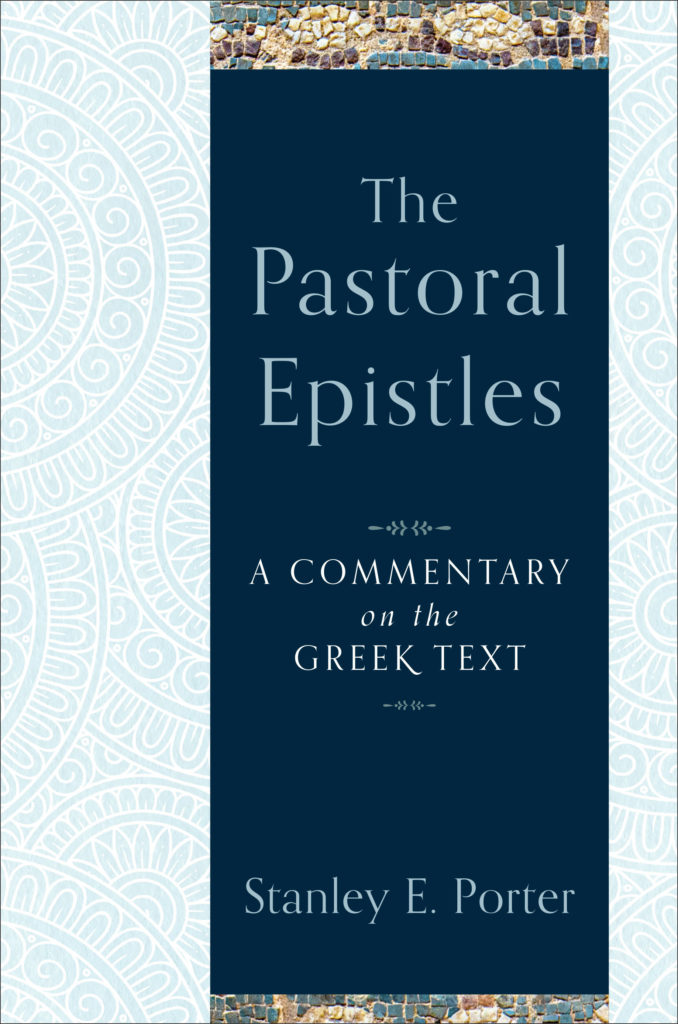
I’ve known of Stan Porter’s forthcoming commentary on the Pastorals, but noticed it “officially” in Baker’s academic catalog today. Here’s the webpage. Per Baker, hardcover will be available in August 2022, e-book in November. Amazon, though, says Kindle version will be available 8/16/22 and hardcover 11/15/22.
Publisher’s blurb:
“New Testament scholar Stanley Porter offers a comprehensive commentary on the Pastoral Epistles that features rigorous biblical scholarship and emphasizes Greek language and linguistics.
“This book breaks new ground in its interpretation of the Pastoral Epistles by focusing on the Greek text and utilizing a linguistically informed exegetical method that draws on various elements in contemporary language study. Porter pays attention to the overall argument of each book while also delving into the semantics and lexicogrammar to tease out the textual meaning. Attentive to the history of scholarship on these three controversial works, the commentary addresses the major exegetical issues that arise in numerous highly disputed passages and offers innovative answers to traditional exegetical problems. Professors, students, and scholars of the New Testament will value this substantive work.”
